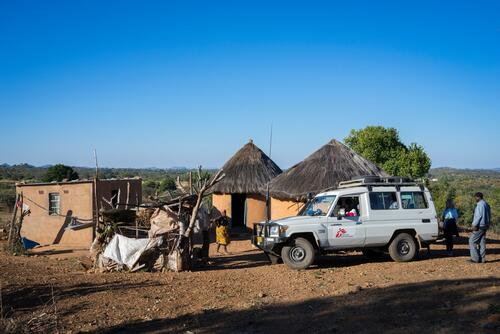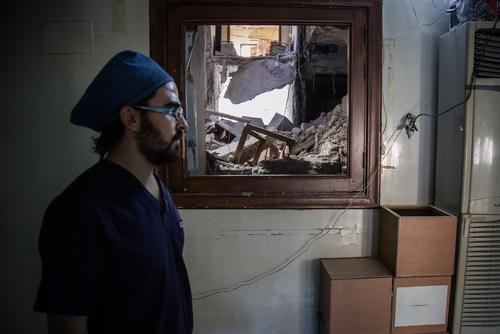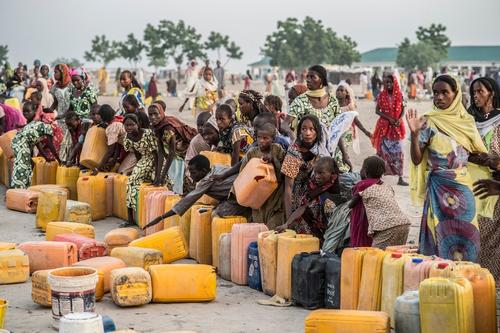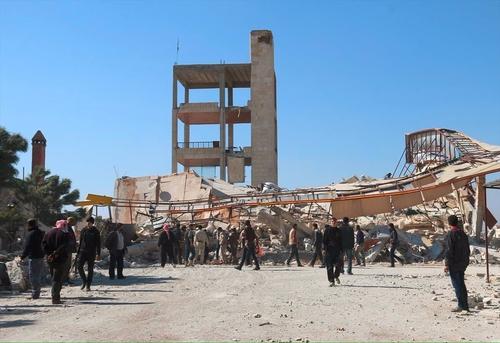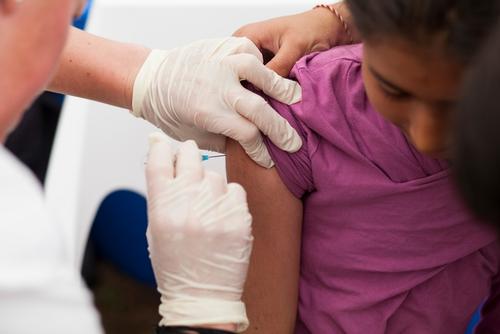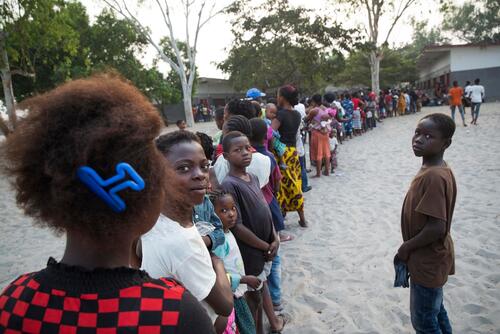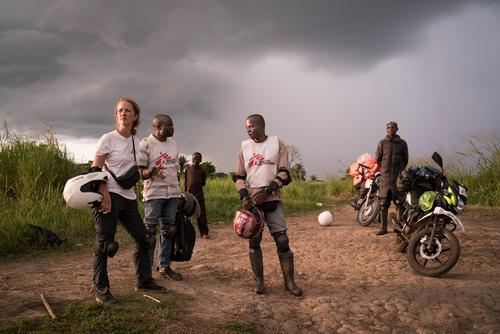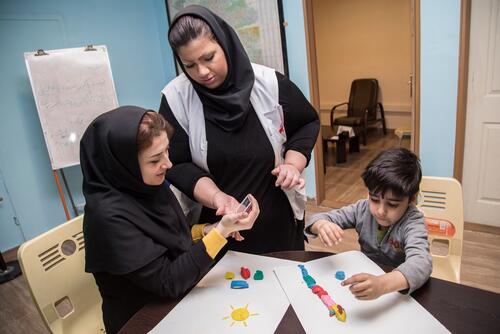
39,900
39,9
2,200
2,2
1,400
1,4

1,100
1,1
570
57
The economic situation continues to decline with very little funds available for any public expenditure and social services. As a result, the health sector faces numerous challenges, including shortages of medical supplies and essential medicines. In addition, the country was affected by floods and regular outbreaks of water-borne diseases due to deteriorating water and sanitation conditions in parts of the country, including the capital Harare.
While HIV prevalence has decreased from 30 per cent in the early 2000s to 15 per cent today, there are still major gaps in services, such as the availability of routine viral load monitoring and second-line antiretroviral (ARV) treatment. Cervical cancer is an emerging health problem, with women living with HIV five times more likely to contract it than those who are not.
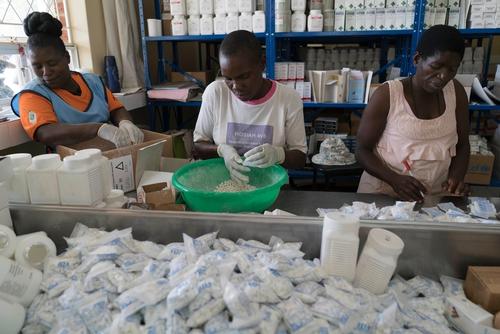
Harare
MSF offers comprehensive support to victims of sexual violence and also offers comprehensive services for adolescents in the urban district of Mbare. In Epworth polyclinic, a comprehensive package of HIV, TB and multidrug-resistant TB (MDR-TB) care is adapted for all ages and cervical cancer screenings and early treatment strategies are provided for all HIV-positive women.
MSF continues to reconstruct and repair boreholes in the city’s most vulnerable neighbourhoods, providing access to clean water as a strategy to prevent outbreaks of water-borne diseases such as typhoid and cholera.
MSF supports the diagnosis and treatment of HIV, TB and mental health in Chikurubi maximum security prison and offers psychiatric treatment, care and support to patients in Harare central hospital’s psychiatric unit. MSF also provides decentralised psychiatric care and community follow-up after discharge to prevent relapse and re-admission to the hospital. In 2016, teams carried out 1,579 individual and 180 group mental health counselling sessions. MSF also completed renovation works and construction of the new outpatient department at Harare psychiatric hospital, providing the facility with 100 beds in the inpatient department.
Gutu
In Gutu, where MSF has taken a community-based approach to managing large cohorts of stable HIV patients since 2011, the initial findings of a large population-based survey by MSF Epicentre in June 2016 indicate that the district reached 86-94-86 and is on track to reach the 90-90-90 By 2020, 90 per cent of all people living with HIV will know their HIV status, 90 per cent of all people with diagnosed HIV infection are on sustained antiretroviral therapy, and 90 per cent of all people receiving antiretroviral therapy have viral suppression. goals. In Mwenezi, MSF is working with the MoHCC to fully implement ‘test and start’ WHO guidelines released in 2015 which state that anyone diagnosed with HIV should begin antiretroviral treatment as soon after diagnosis as possible. for approximately 18,000 people living with HIV.
MSF continued to support the MoHCC to implement new models of care and community adherence groups (CAGs) in which people take turns picking up antiretroviral (ARV) drug refills – and also provided preventive screenings and early treatment strategies for cervical cancer in six district health centres.
In Manicaland, MSF supports the roll out of CAGs throughout the province and routine viral load monitoring of patients on ARV treatment in five districts. In Chipinge district and Mutare Provincial Hospital, MSF supports the MoHCC in treating non-communicable diseases such as diabetes and hypertension.
MSF also provided treatment to a total of 26 MDR-TB patients in Epworth, Gutu and Mwenezi.
In Beitbridge, teams provided mental health support and medical care, including HIV and TB testing and treatment, to Zimbabweans who had been deported from South Africa.
Country-wide, MSF also supported the rollout of targeted and routine HIV viral load monitoring, with 84,502 viral load tests completed in 2016.
288
288
13.6 M
13.6M
2000
2
Patient story
Jabulani Simango* – 21 years old, from Epworth
"When I was eleven years old, I fell seriously ill and I was taken to hospital in a wheelbarrow. I was started on ARVs but I didn’t understand why I was taking them. My parents died when I was young and my other family members didn’t have much information about HIV and AIDS … I was advised to join support groups for young people living with HIV. I then realised that I was not alone. There were many people my age who were HIV positive and from that moment onwards, I started to adhere to my treatment. MSF used to visit me at home to check if I was taking my medication consistently and in a proper way. After a while, my condition began to improve. When I showed signs of recovering, my family members began to accept me and my status. They began to realise that being HIV positive is not the end of one’s life."
* Name has been changed



